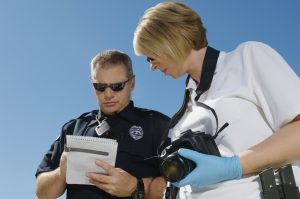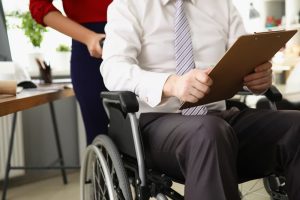Posted on Tuesday, February 1st, 2022 at 3:04 pm
You need specific documentation to build a successful personal injury case. Additionally, you must provide sufficient evidence of someone else’s negligence to prove they were at fault for the accident. Without the necessary evidence to show what happened and the injury you suffered, it’s unlikely you’ll receive the compensation you’re entitled to.
Handling a personal injury case requires understanding the complexities of the process and steps involved. No two cases are alike, which means the evidence you need for your case might not necessarily be what someone else needs in their case. You should know whether certain documents will be valuable before you waste your time locating them. There are some documents that nearly everyone with this type of case needs, however.
It’s a good idea to hire a personal injury attorney immediately after the accident. Your legal team can investigate and gather all the available evidence to help you hold the negligent party liable. Without an experienced attorney by your side, you could face a denied claim or receive much less compensation than you deserve.
If you’re pursuing a personal injury case, contact us first, and then you should work to obtain the various documents listed below.
Police/Incident Reports

A police report is very important.
A police or incident report is the first piece of evidence available after an accident. It can set the tone for the future of your personal injury case. The document can contain relevant information regarding the cause of the incident and the party responsible for your injury. It can also include details, such as:
- Whether witnesses saw what transpired
- Location of the accident
- Injuries suffered during the incident
- The sequence of events leading up to the accident
- Insurance coverage information
A police report is often available when an officer investigates a motor vehicle crash. Law enforcement should show up at the scene when someone calls 911 to report what happened. The report could consist of details that can help you prove another driver or party’s actions caused the accident.
Incident reports can include information regarding an injury suffered in a public place, such as a restaurant, shopping mall, or at work. You should inform the manager of the accident and ask to complete an incident report. You can write down information related to what took place and include the date and your signature.
Accident Scene Photos
You should take pictures at the accident scene if possible. Unfortunately, some people sustain debilitating injuries and can’t get up and walk around after a traumatic incident. If your injury isn’t too serious, obtain photographic evidence to use in your case.
Accident scene photos can be helpful in some personal injury cases. For example, if you were involved in a car accident, take pictures of the crash site. Snap photos of debris in the road, skid marks, and damage to the vehicles. Or you can take pictures or a video of the dangerous conditions on someone’s property, such as defective stairs or a wet floor that resulted in your fall.
Medical Evidence

Gather and keep all of your documents.
Medical records can provide indisputable proof of an injury. When you go to the hospital or your doctor’s office, the notes they write for your patient file can include information related to the accident. Your treating physicians might address the cause of your injuries, such as medical malpractice or a truck accident. That becomes evidence to show you suffered a new injury instead of symptoms from a preexisting condition.
Every time you attend an appointment, keep any documentation you receive, such as:
- Surgical reports
- Physical therapy notes
- Imaging test results
- Prescriptions
- Diagnostic orders
- Hospitalization records
- Ambulance services
- In-patient rehabilitation notes
Case-Related Expenses
You should receive compensation to cover the costs you incur after an accident. If someone else is liable for your injury, they should become financially responsible for your losses. It’s vital to maintain documents showing your expenses from the accident, such as:
- Repair estimate from damage to your vehicle in a car accident
- Physician copays
- Home healthcare services
- Operative bills
- Assistive medical devices
- Expenses for necessary changes at home, such as installing a ramp for a wheelchair
If you have out-of-pocket costs, you should also keep your receipts or print out bank statements. Sometimes, out-of-state accident victims need to extend their trips. Rental cars, rideshare services, hotel stays, and other expenses are common for tourists who must seek treatment after an accident. If any of the above is confusing, feel free to contact us for a free, no-obligation consultation.
Lost Wage Reports
You should complete a lost wage report if your injury prevents you from returning to your job or earning your usual income. The report can show the number of hours you missed and the pay you couldn’t make due to the accident. You could seek compensation to cover the money you didn’t earn while recovering.
Additionally, you could pursue compensation for your loss of earning capacity if the accident leaves you with a permanent injury. Many people develop disabilities and can’t return to work. The lost wage report can provide detailed information regarding your average pay and what you will miss out on in the future due to your inability to maintain employment.
Contact Us
Farris, Riley & Pitt, LLP has fought on behalf of accident victims for over 20 years. Our Birmingham personal injury lawyers are ready to advocate for your rights and seek the money you’re owed from the insurance company.
If you suffered an injury in an accident due to someone’s negligence, call Farris, Riley & Pitt, LLP at (205) 324-1212 right now for your free consultation.















